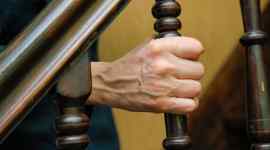For seniors and their adult children, the family home may be a source of comfort, safety, and happy memories, so it’s easy to understand the appeal of aging in place.
Spending your days worried about mom or dad?
Maybe Mom can no longer drive to bingo on Monday evenings and misses her friends. Or perhaps you noticed that Dad doesn’t bathe often enough, and his hygiene is suffering as a result.
Whether you stepped in to help an elderly relative out of love, a sense of responsibility, or financial necessity, caregiving can sometimes feel like a burden – even for the most devoted family members.
Spending a little extra time choosing a thoughtful gift to thank a home aide for all they’ve done for you or your parents or your child will show you went above and beyond to demonstrate your appreciation.
Hiring private care for yourself or a loved one is an important decision that requires careful consideration. There’s so much information to absorb and often not a lot of time to process everything.
Once you determine that your loved one needs ongoing care at home, the next decision you’ll have to make is whether you should hire a caregiver privately or through an agency.
Navigating the financial landscape of later life can be daunting for many seniors, as rising healthcare costs, dwindling income streams, and unforeseen expenses threaten their financial security and overall well-being.
Helping your new caregiver succeed is one of the most important roles you’ll play as you manage the home care needs of yourself or your loved ones.
Maybe you’ve noticed that mom or dad is “starting to slip.” Or maybe they’ve had a health scare: a fall that didn’t break a hip, or flu that didn’t become pneumonia. Take a moment to breathe a sigh of relief.










